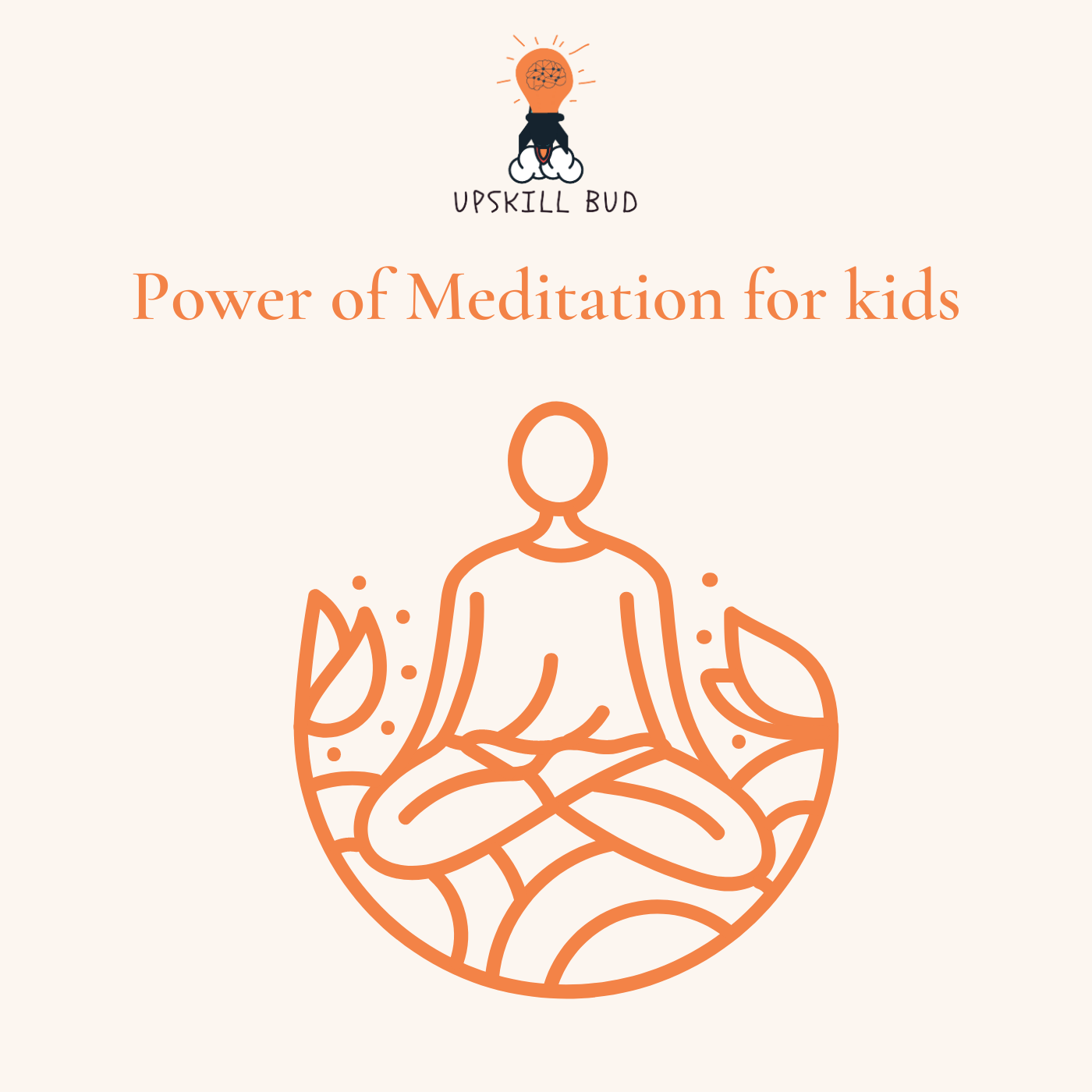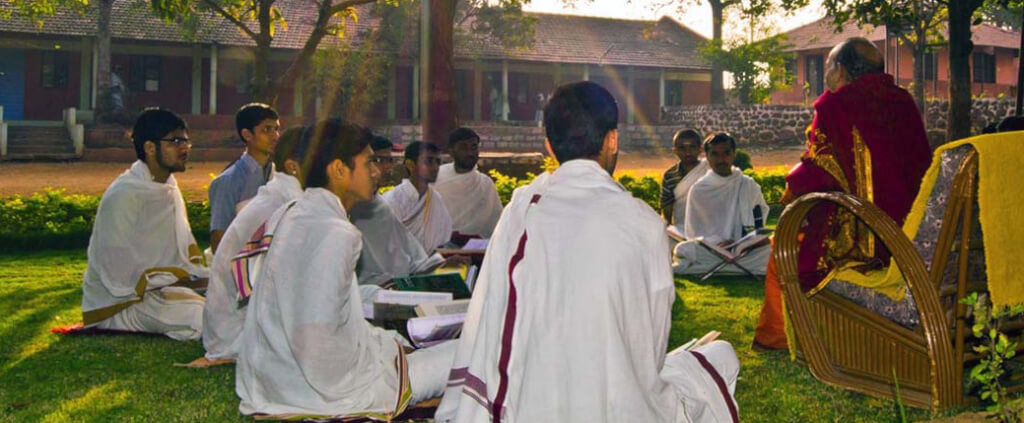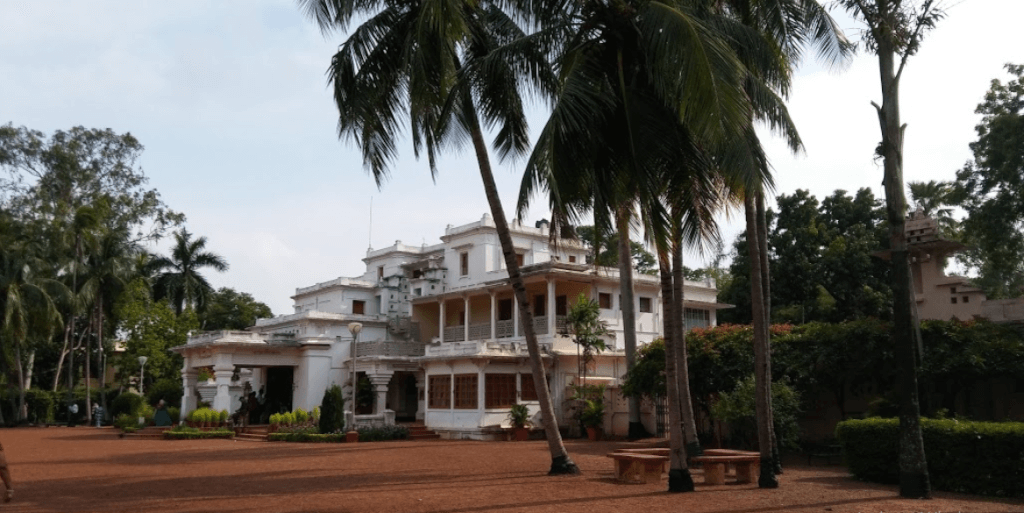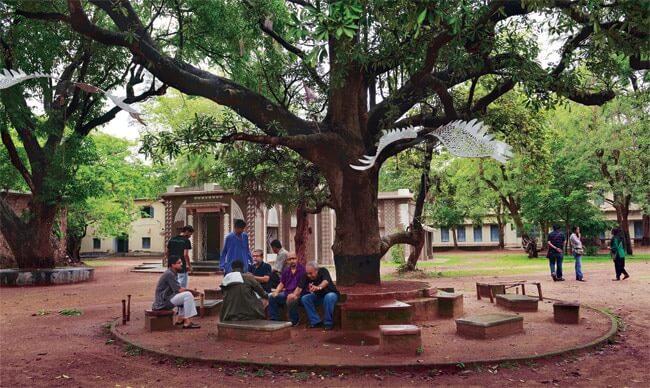
Gurukula to Visva-Bharati: Indian education through the years

The modern education system in India is a continuation of the colonial era foundations. We know, Macaulay’s idea gave birth to the English education we are provided. Owing to colonial hangover and our subservience, we are mostly unaware of ancient Indian education systems.
India, undoubtedly, has a past to be proud of. From the gurukulas to Rabindranath Tagore’s Visva-Bharati University, we have offered a lot to the world.
Precisely why, it is essential for young Indians to be aware of the abundantly rich and enlightening education systems. We would have inherited this uncluttered, if not for the multiple invasions and centuries of colonial oppression.
“We owe a lot to the Indians, who taught us how to count, without which no worthwhile scientific discovery could have been made.”
-Albert Einstein
Gurukulas: Home to holistic Indian education
Limiting education and defining its success by the rewarding professional opportunities it offers was not in the least the purpose of gurukula education.
This system emphasized on comprehensive learning as against rote-learning methods that came into existence later. Primarily imparting vedic education, this system is devoted to character formation and spiritual development.
At the core of its approach was the philosophy-Education is not the end, but the means to understanding oneself. It emphasised on intellectual development leading to spiritual enlightenment.
For every student, rich or poor, devotion to the guru was the first and foremost value. Sanskrit was the medium of instruction. The subjects comprised vedic literature, physical education, sculpturing or ‘Silpa Sastra’ and education through travel.
In a nutshell, vedic education or the gurukula system entailed a deep seated concern for the world as well as individual character building. Though, the absence of science is a glaring difference between the modern era and the vedic age, scientific temper was surely an integral part of the bygone era. More importantly, modern education’s search for the key to nurture global leader might just be found in the gurukulas.
Visva-Bharati: Tagore’s gift to the world
“And for that they must be trained, not to be soldiers, not to be clerks in a bank, not to be merchants, but to be the makers of their won world and their own destiny. And for that they must have all their faculties fully developed in the atmosphere of freedom.”
–Rabindranath Tagore, School Master.
India’s pride, a legendary poet, noble laureate, and revered with the title ‘Gurudev’-Rabindranth Tagore is considered to be among the greatest teachers and educationists of any era.
A staunch critic of the colonial education, he founded the first school at Santiniketan in 1901. The campus, located in the lap of nature, offered students serene and meditative surroundings. Tagore believed that ‘classroom-only’ education, without a connect with the nature was incomplete.
Santiniketan: In the lap of nature
Following the establishment of Santiniketan and Sriniketan, the now adored Visva-Bharati University was established in 1922. Home to many institutes of art, the university mirrors Tagore’s core vision of fostering creativity, music and art.
He was a strong advocate of experimental education and believed that the freedom to learn without barriers was key to holistic development. The best aspects of the gurukula system were evident in Tagore’s approach to education.
Above all, Tagore’s universe is vast and rooted in love for making our world a peaceful, progressive place. His philosophy of learning under a tree and not letting walls of expectations cloud the art of learning, can surely serve as a marker for modern schools. Certainly, not treating physical well being and academic education as distinct will bode well for education in the future.
Ancient vedic education, many civilizations, traditional wisdom and other unique aspects have made Indian education a gift to the world. While the colonial era’s education has had considerable benefits, it has eroded a significant treasure of Indian education through the years.
Amidst all this, it is safe to say that Gurukulas and Santiniketan among other contributions will continue to guide education in India and the world for a long time.
Also Read: The Education System In India During The Vedic Age
Recomended Blogs

It indeed is not easy to learn something new! Getting out of your comfort zone and learning something

Zedua
1 year ago

Many successful people have attributed their success to the practice of Meditation. How great i

Zedua
2 years ago

Hybrid classes is the trend in the air or was it already there in an implicit form? Questions are ofte

The Green School Bangalore
2 years ago



